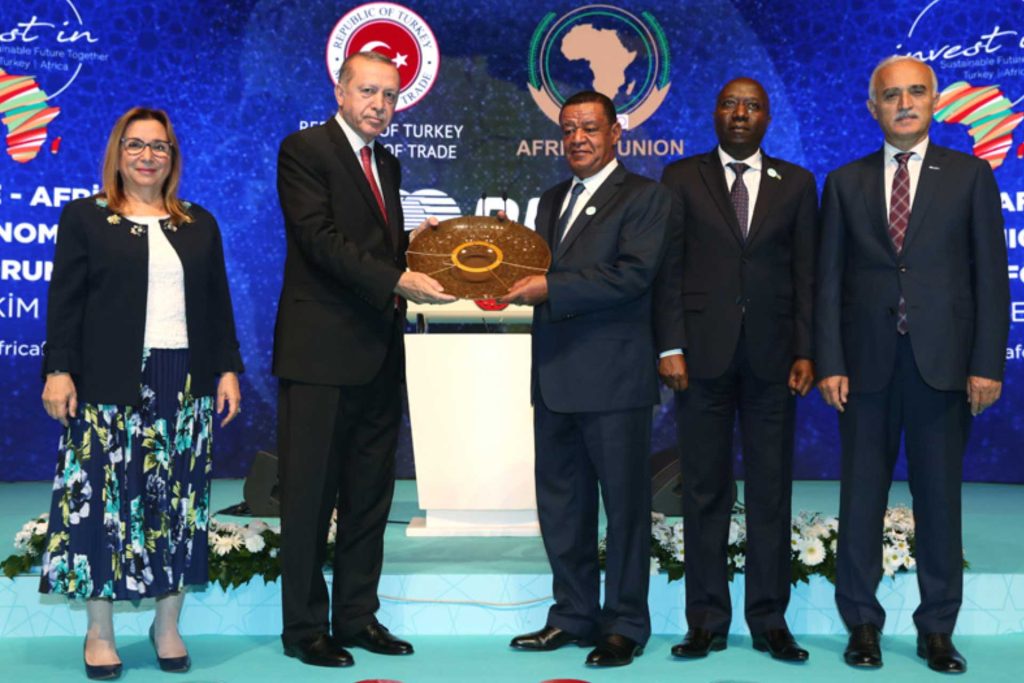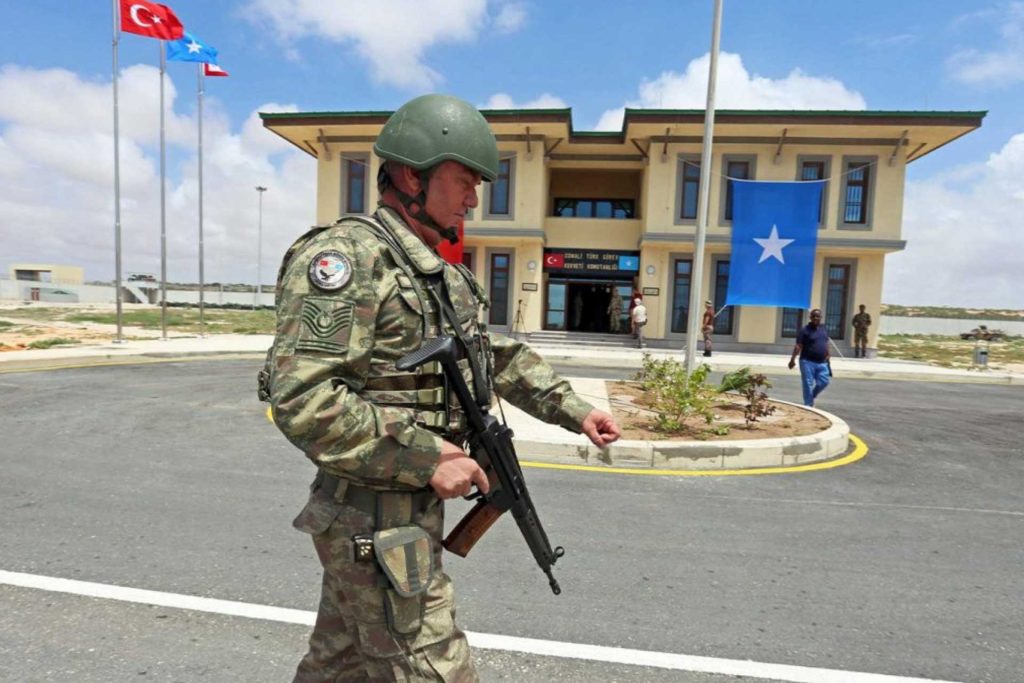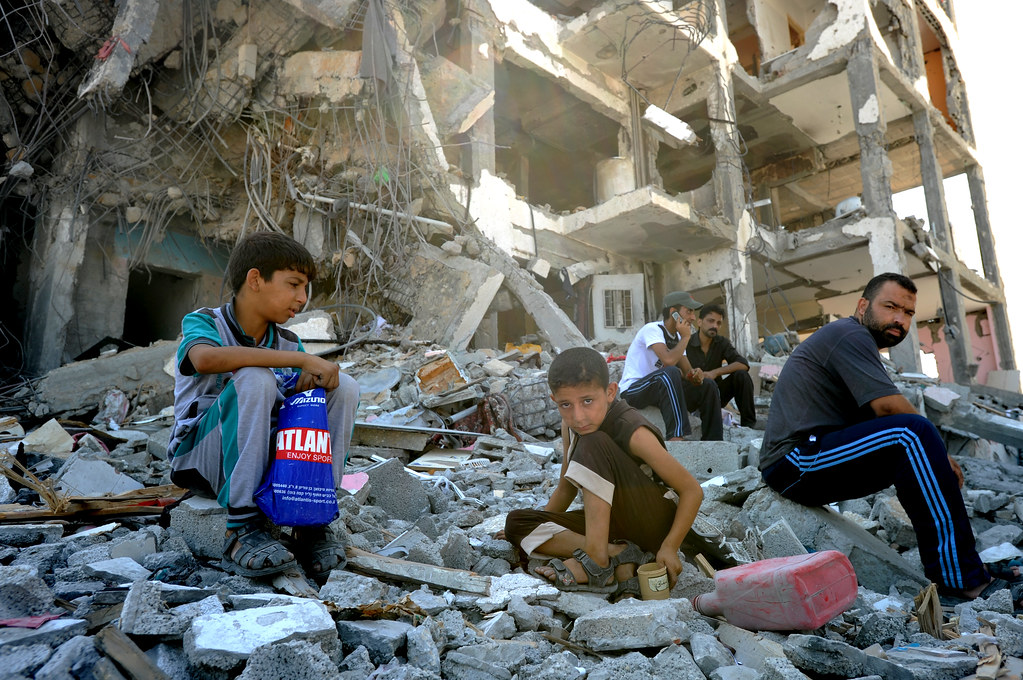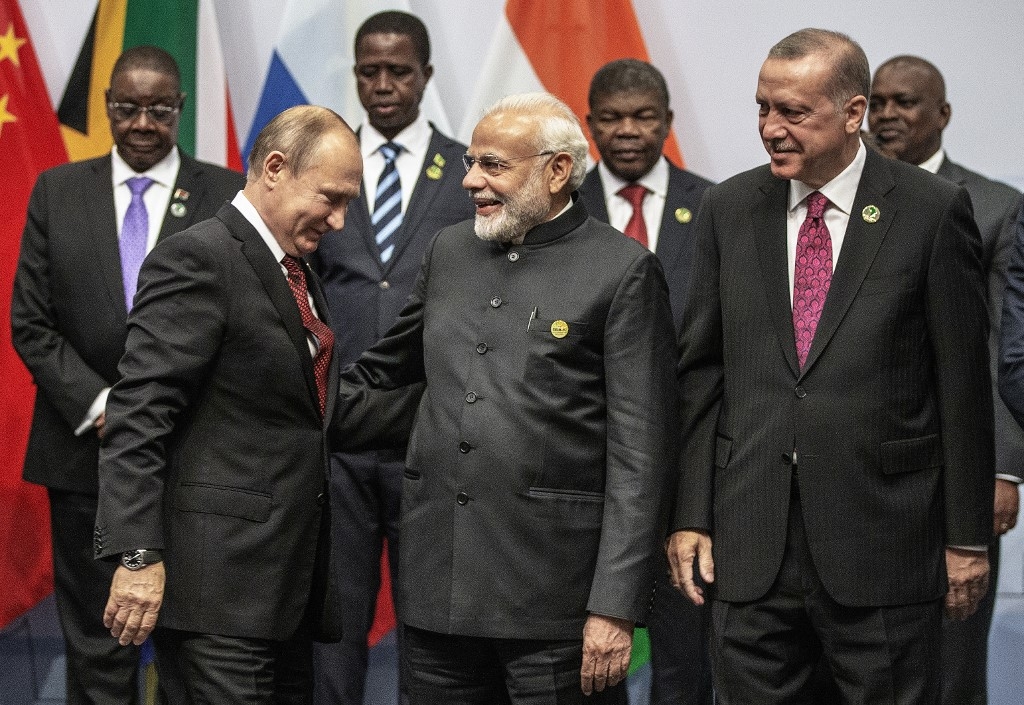Partnership and Cooperation between Türkiye and Sub-Saharan Africa
The rapid progress of Türkiye-Africa relations in the 17-year period between 2005 and 2022 continues as if to ignore the lack of communication and representation before 1998. In 2005, Türkiye joined the African Union (AU) as an observer member, following the entry into force of the Action Plan for Opening Up to Africa in 1998. Following this development, 2005 was declared the Year of Africa in Türkiye. In this process, communication between the regions was accelerated not only diplomatically but also through many organizations such as TIKA, AFAD, Yunus Emre Institute, Maarif Foundation and Turkish Airlines. As of the 1st Türkiye-Africa Partnership Summit in 2008, Türkiye was declared a strategic partner by the African Union and diplomacy began to dominate the influence in the region.[i]

Assist. Assoc. Prof. Dr. Gültekin Sümer explains strategic partnership as the pursuit of longer-term and comprehensive goals based on internal political cohesion. [ii] In this part of the article, I would like to mention a situation that I will talk about later in order to clarify the definition of strategic partnership. Let us pay attention to the following words of Toni Alaranta:[iii]
“… Especially like in Somalia. They created an environment where the local people admire Türkiye, admire Erdoğan. These are positive. But when the hegemonic competition increasingly emphasizes the interests of the country, or when the local population thinks that these external actors, including Türkiye, have hegemonic games in their goals, it has a negative effect on the local population.”
Admiration and Diplomacy
As Mr. Sümer says, if we take into account the fact that the strategic partnership has a longer maturity depending on domestic political harmony, the aforementioned admiration may negatively affect relations in the long run or in case of bilateral domestic political instability. For this reason, we can say that Türkiye should consider improving its diplomatic relations in the region rather than gaining the admiration of the local population through aid. This is why Türkiye’s change of policy to the African Partnership Policy in 2013 is particularly important, as this policy change has not only been reflected on paper but also in language.

Türkiye’s Diplomatic Language
If we pay attention to the language Türkiye has used in its relations with African countries, especially after 2013, this language has changed from the language of “aid” to the language of “partnership and cooperation”. We can say that the reason why President Erdoğan and Nur Sağman carefully and meticulously chose these words in their speeches is to prove to Africa that they are different from the West. The word “potential”, which is one of the words we hear most often when talking about Africa, is also carefully chosen in this direction. In particular, the slogan of the African Union (AU), “Providing African solutions to Africa”, was repeated many times by President Erdoğan at the African Union.

Nur Sagman, Director General of the West and Central Africa Department of the Ministry of Foreign Affairs
The Struggle for Geopolitical Influence and Diplomacy
Like many commentators, expert academic Toni Alaranta believes that Türkiye and other actors see Africa as an avenue for power struggles. Speaking of the struggle for influence in the region, it should be noted that on June 15, Ambassador Wang, Director General for West Asia and North Africa at the Ministry of Foreign Affairs of the People’s Republic of China, met with Deputy Minister Önal, which is an indication that the two sides are in communication and follow-up on their movements in the region. In fact, what Alaranta is referring to is the power struggle between Türkiye and some Arab countries, which I mentioned below, rather than the effective struggle between Türkiye and China in the region.
There are a few countries in particular that stand out in the relations between Türkiye and Sub-Saharan Africa (SAA). These noteworthy features can be attributes such as underground resources and geopolitical location. Somalia, for example, stands out with its geopolitical position as a country that connects the Mediterranean Sea to the Indian Ocean via the Suez Canal-Red Sea-Gulf of Aden. The Turkish military base in Mogadishu on the shores of the Indian Ocean and the airports and ports managed by Turkish companies are evidence of Türkiye’s importance to the geopolitics of the region.

The 1st Türkiye-Africa Partnership Summit, which took place on November 19-21, 2014, stated that the right of African countries to self-determination would be at the center of Türkiye’s foreign policy, which can be seen as an attempt to limit the influence of all countries other than African countries in the region. [iv]This can be seen as a kind of power struggle, but actors are often more focused on preventing another actor from gaining power than on gaining power. This is why they often form new alliances and engage in diplomatic actions. If we replace the concept of power with the concept of diplomacy, the events taking place in the region can be called “diplomatic struggles”.
On December 11, 2016, the month after Saudi Arabia formed an alliance with Jordan, Egypt, Djibouti, Somalia and Sudan to reduce the influence of Türkiye, Qatar and Iran in the Red Sea region, the Türkiye-Africa I. Economic and Business Forum was held on November 2-3, 2016. In this way, the influence in the region was tried to be kept stable. I can clearly say that when the geopolitical position of the region is valuable and influence is at stake, diplomatic struggle is inevitable. In this case, I would like to recall President Erdoğan’s words, “Türkiye wants Africans to decide the future of Africa, and no one should impose anything by force. Therefore, it is not in competition with any country.” Although these words are in opposition to the concept of “power struggle” in the region advocated by Toni Alaranta, we cannot say that they completely reject the concept of “diplomatic struggle”.
Türkiye’s oft-questioned presence in Africa
We can continue by examining how Türkiye views its own presence in Africa. Türkiye states that its relations with the region have progressed rapidly in the last 17 years because Africa’s potential is beneficial for both Türkiye and Africa. We know that common problems and goals bring countries together. One of the main goals of both Türkiye and the African Union is economic development. The unemployment problem in Africa with the search for new markets by Turkish companies provides a supply-demand balance. This situation is a positive development for Africa in the near future, as China’s activities in Africa provide the labor deficit from its own country, while Türkiye’s companies operate in the region.

Sputnik Türkiye
On the other hand, in the long run, if economic development, which is one of the main objectives of the African Union, is realized and primary activities are developed and secondary or tertiary economic activities are started, whether Türkiye’s continued presence in the region will pose a threat to Africa’s local market remains a question that can be answered years later. We should not forget that diplomatic interest in Africa has not only been fueled by Türkiye. African Forums organized by countries such as the People’s Republic of China, India and Brazil are also indicative of the interest in Africa.
Efsa Demirhan
Source
[i] https://www.mfa.gov.tr/turkiye-afrika-iliskileri.tr.mfa
[ii] Sümer, Gültekin. (2010). A Comparative Overview of Strategic Cooperation and Strategic Partnership. August 24, 2022. https://dergipark.org.tr/tr/download/article-file/558373
[iii] Kasapoğlu, Çağla. (October 8, 2020). Türkiye’s Africa Policy: From Expansion to the Quest for Influence. August 24, 2022. https://www.bbc.com/turkce/haberler-dunya-41510485
[iv] Oruç, Ali. (May 2022). Evaluation of Türkiye’s Africa Strategy in the Context of Foreign Economic Relations and Suggestions. August 24, 2022 https://www.sbb.gov.tr/wp-content/uploads/2022/05/Turkiyenin-Afrika-Stratejisinin-Dis-Ekonomik-Iliskiler-Baglaminda-Degerlendirilmesi-ve-Oneriler_Ali-Oruc.pdf
•




Comments